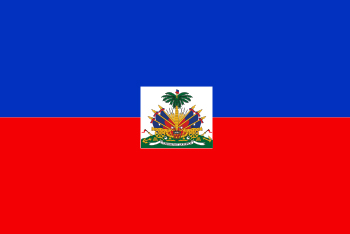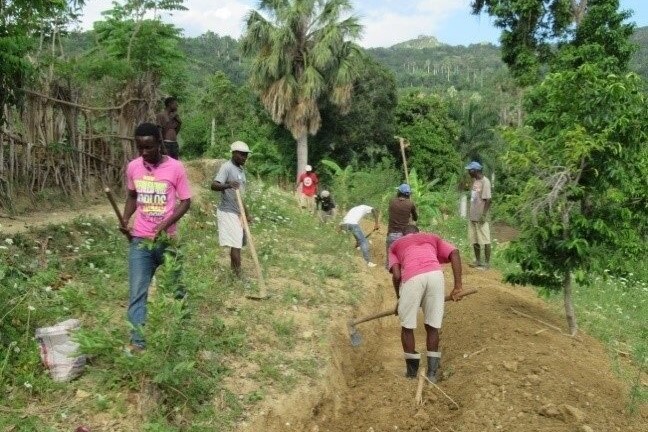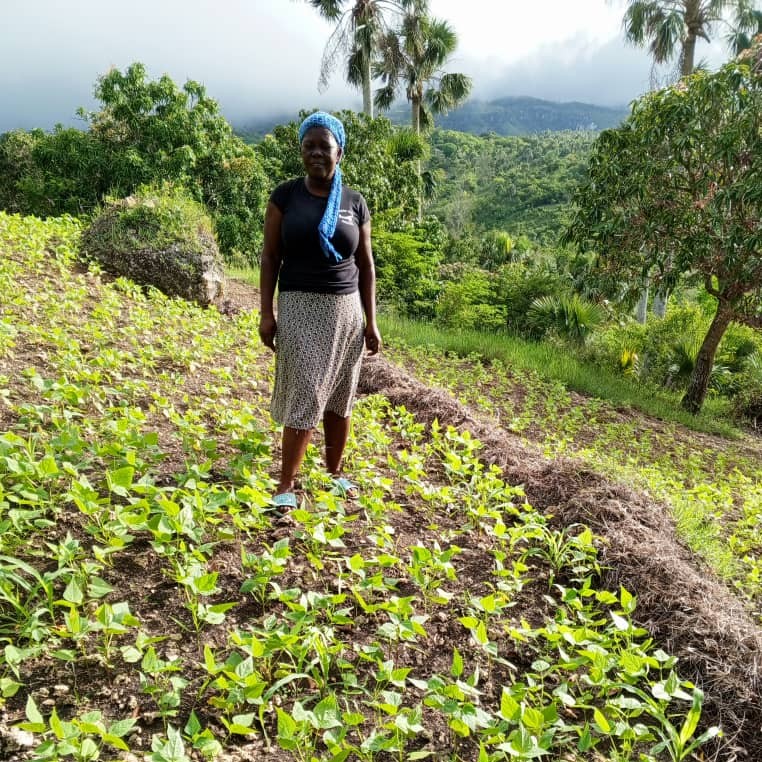 Haiti Baie-de-Henne
Haiti Baie-de-Henne
$78,000 needed of $80,000

Implementing Organization
Church World Service (CWS)
Program Summary
The Haiti Baie-de-Henne program aims to assist families to get back on their feet within the context of natural disasters, insecurity, political instability, fuel crisis, and food insecurity. In this challenging context, Church World Service and local partner Organisation des Planteurs de Fond Saint-Luc pour le Développement Intégré de Baie-de-Henne (OPFSLDIBH) are working to reestablish and strengthen the economic capacities of farming families in Baie-de-Henne.
The program focuses on increasing the resilience of families with regard to climate, security, and economic shocks, through the diversification of livelihoods. Trainings on soil conservation techniques help increase the availability of safe water and agricultural production. Providing small loans to farmers to invest in various income-generating activities helps families diversify their livelihoods and earn an income during times of drought or between farming cycles to purchase food, pay school fees, and invest in seeds and other inputs.
Success Stories

Anti-Erosion Barriers Make All the Difference
Instability of every imaginable sort affects agricultural production in Haiti, including political violence, lack of reliable access to markets, food insecurity, and a wildly unpredictable climate that can bring disasters to small farms. But Claudette says she’s found hope with each new farming technique she’s learned in the “My Garden is Better” program led by Church World Service’s local partner OPFSLDIBH.
Claudette has lived her entire life in the same place. The farming practices she grew up with couldn’t handle modern agricultural realities. So, when she had a chance to receive climate-and locality-specific instruction, she was eager to start.
Currently, Claudette works a single plot, and lack of rain in previous months affected her spring harvest. However, “This program is my happiness because of every discovery I’ve made. For example, I’m practicing a better way to prepare the soil before planting, which will help me achieve a higher yield,” she says.
With the knowledge gained from “My Garden is Better,” she installed anti-erosion barriers using grass and stakes to protect the soil and improve her production. She planted corn, black beans and white beans. Although conditions remain difficult, she has noticed a significant improvement in her agricultural techniques.
Neighbors and visitors also learn these practices from participants like Claudette and replicate them on their own land, multiplying the program’s impact. This knowledge transfer has been key. Last year, climate conditions were extreme. From May to September, drought prevented planting, while from October to December, torrential rains destroyed crops and infrastructure. Despite these challenges, eight out of the ten families in Claudette’s group applied the techniques they learned in training.
Since the aim of the techniques is to help protect the crops against erosion, these families were able to harvest food for their families, despite the heavy rain. Land with anti-erosion structures had higher yields than land with no such structures, where the water carried all the crops away.
Haiti Baie-de-Henne Program
Led by Church World Service (CWS) and Organisation des Planteurs de Fond Saint-Luc pour le Développement Intégré de Baie-de-Henne (OPFSLDIBH)
